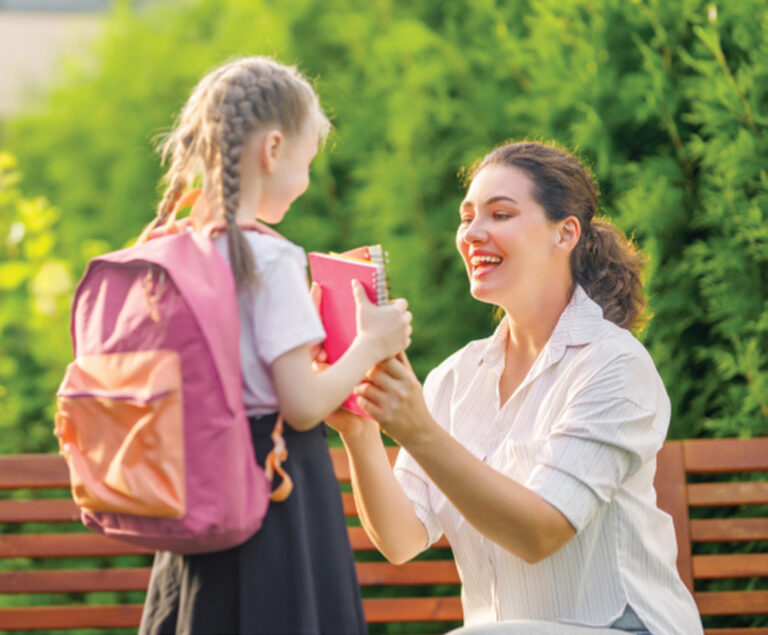Avoiding the Summer Slide: Helping Your Child Start the New School Year Strong

When the long summer holidays arrive, most children (and teachers!) look forward to a well-earned break. However, research consistently shows that extended time away from the classroom can come with a hidden cost: the “Summer Slide.” Studies in the United States suggest that, on average, pupils lose between 20–30% of their school-year gains in reading and around 27% in maths over the summer. Younger children and those learning in a second language can be particularly affected. It’s not just academics that suffer, teachers often report dips in confidence, focus and social skills after a long break.
In Thailand, with our longer summer holidays compared to some other countries, the risk can be even greater. While rest and family time are essential, taking simple steps during the break can help children return to school ready to learn, rather than spending the first few weeks “catching up.”
Why Summer Slide Happens
The brain is like a muscle, without regular use, it loses some of its strength. When children take a complete break from structured learning, their academic habits weaken. Reading fluency slows, maths recall becomes rusty and writing stamina declines. This doesn’t mean children need to spend their summer doing worksheets every day, but it does mean that a little, consistent learning goes a long way.
Starting the New School Year Smoothly – Practical Tips for Parents
Get organised early – In the week before school starts, gather all supplies, label belongings, and check uniform items still fit.
Review the timetable together – Go through class schedules so your child knows what to expect on the first day.
Talk through any worries – Discuss any concerns and reassure your child about what’s ahead.
Do a practice school run – Especially for younger children, rehearse the journey to make the first day less stressful.
Set clear goals – For older children, agree on a few realistic aims for the term to give them motivation and focus.
Re-establish routines – In the final week, shift bedtimes and wake-up times towards the school schedule.
Stay connected with teachers – If you notice your child struggling, contact their teacher early so small gaps can be addressed quickly.
Beat the Summer Slide
Make Reading a Daily Habit – Reading is one of the simplest, most effective ways to prevent learning loss. Encourage at least 20 minutes of reading a day, this could be novels, comics, magazines or even online articles (with a critical eye). For younger children, read aloud together and discuss the story. For older ones, ask questions about plot, character and themes. School e-book platforms can be a treasure trove during the holidays.
Keep Maths in the Mix – You don’t need to run formal lessons to practise maths. Get children involved in real-life problem-solving: calculating change at the market, doubling a recipe or working out travel times. There are also excellent free apps and websites that make maths practice engaging. Short daily sessions are better than occasional long ones.
Write for a Purpose – Encourage writing in fun, meaningful ways. This could be keeping a holiday journal, sending postcards to family, creating a short story or even planning a family day out and writing the itinerary. For teenagers, try combining writing with their interests: film reviews, blog posts, or sports match reports.
Explore Hobbies and Skills – Learning isn’t just academic. Encourage children to explore a hobby that develops creativity or problem-solving: painting, photography, coding, music or building projects. These activities boost confidence and persistence, which translate into classroom success.
Keep to a Healthy Routine – Late nights and long lie-ins can make the return to school a shock to the system. In the final two weeks of summer, gradually shift bedtimes and wake-up times closer to school schedules. Regular exercise, balanced meals and limited screen time all help maintain focus and wellbeing.
Use Trips as Learning Opportunities – Visits to museums, cultural sites, nature parks or even local markets can be rich educational experiences. Ask questions, encourage curiosity, and help your child make connections between what they see and what they’ve learned in school.
 A Balanced Approach
A Balanced Approach
Beating the Summer Slide doesn’t mean replacing relaxation with rigid academics. The most effective approach blends fun with learning, making it part of everyday life rather than a chore. Ten to twenty minutes a day of focused academic activity, alongside rich life experiences and good routines, can make a huge difference.
By James Kemp Deputy Head of Mooltripakdee International School
